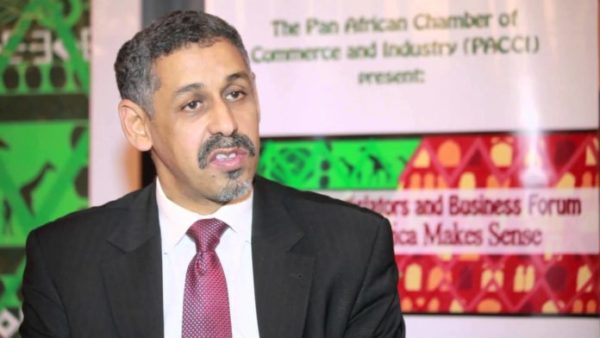During the 44th annual meeting of the Islamic Development Bank Group (Marrakech, 3-6 April), with the success of their cooperation in the field of agricultural resources, BADEA and G5 Sahel have agreed to broaden their scope of cooperation in the field of infrastructures.
Created in 2014, the G5 Sahel is a regional organization that aims to increase the security and development of people in Burkina Faso, Mali, Mauritania, Niger and Chad.
Because they contribute to the development of the territory and to the occupation of space, the economic activities of the rural populations are one of the prerequisites of civil peace and the harmonious development of the Sahel.
“To ensure socio-economic development and regional integration in the G5 Sahel area, promote internal and intra-regional trade and facilitate the movement of people and goods, states must invest in infrastructure development” ( Strategy for Development and Security, 2016).
Since 1973, the year of its foundation by the League of Arab States, BADEA finances the economic development of African countries, encourages investment of Arab capital and contributes to the provision of technical assistants.
The partnership between G5 Sahel and BADEA began shortly after the G5 Sahel Heads of State asked the Permanent Secretariat to identify the agricultural, animal and fishery potential of the region (Bamako, February 6, 2017).
To do this, he designed an unprecedented study, the realization of which was made possible thanks to the technical assistance of the Arab Organization for Agricultural Development (OADA) and the financing of the Arab Bank for Economic Development. Africa (BADEA).
Following the coordination conference of partners and donors (Nouakchott, December 6, 2018), BADEA resolved to deepen support for G5 Sahel.
To this end, it has carefully studied the “request for financing of road projects included in the PIP (2019-2021)” sent by the Presidency of the Council of Ministers of G5 Sahel (28 December 2018).
On the occasion of the meeting of the Arab Coordination Group (GCA) (Kuwait, 15-16 January 2019), BADEA and the other members of the GCA expressed their interest in five road infrastructure projects worth total of $ 323.88m:
• Route Djibo – Baraboulé – Mali border (Burkina Faso): $ 28.54m
• Sandara Road – Nioro (Mali): $ 58m
• Route Tidjikja – Kiffa – Kankossa – Sélibaby – Khabou (Mauritania): $ 62.78m
• Keita Road – Tamaske – Kolloma – Tahoua (Niger): $ 26.24m
• Liwa – Rig Rig and Ngouri – Mao Roads (Chad): $ 148.32m
According to Dr. Sidi Ould Tah, Director General of BADEA, “infrastructures promote the prosperity of populations, facilitate regional integration between countries and constitute an investment with a strong ripple effect”.
As Maman Sambo Sidikou, G5S Permanent Secretary, points out, “the support provided by BADEA illustrates the determination of the Arab-Islamic partners to respond quickly to the challenges of the Sahelians while taking into account the sustainability of the efforts initiated”.
This new contribution from BADEA is part of the implementation of the Priority Investment Program (PIP) – a portfolio of 40 projects set up by G5 Sahel for a total amount of 1.9 billion euros.
The interventions in the first sentence of the PIP (2019-2021) respond to four thematic priorities: governance (€ 81m), resilience (€ 200m), security (€ 396m) and infrastructure (€ 1bn).
To date, the support provided by the Arab-Islamic partners (Saudi Arabia: € 100m and United Arab Emirates: € 30m) has mainly focused on the “security” component of the G5 Sahel.
However, on December 6, 2018, Morocco expressed the intention to support the G5 Sahel in the field of energy (photovoltaics).
There is also a growing interest in Umma donors (bilateral and multilateral) for investment in development.
This trend is reflected in the theme of the IDB Group’s annual meeting in Marrakesh: “Transformation in a changing world: moving towards the Sustainable Development Goals”.
–
The G5 Sahel is an organization created in 2014 by Burkina Faso, Mali, Mauritania, Niger and Chad covering an area of 5 million square kilometers where nearly 80 million inhabitants live. Its mandate is in the areas of security and development. The cumulative Gross Domestic Product (GDP) of Member States is close to US $ 53 billion (UNCTAD, 2018).



